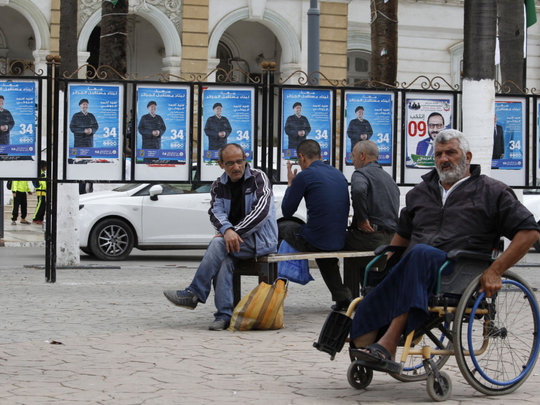
Earlier this month, Algeria held its first legislative elections since the constitutional amendments of 2016. Regime loyalists won 305 of the 462 parliament seats, totalling over two-thirds of parliamentary representation. The opposition acquired no more than 59 seats (less than 13 per cent). This bad performance has spurred many in the opposition to contest the outcome, alleging electoral fraud. A claim the opposition could not substantiate.
In fact, Algeria’s elections took place amidst acute economic crisis, triggered by the sharp decline in oil prices, the main source of state income. A series of measures brought in by the government have been widely regarded as unjustified austerity measures, inciting public resentment. Nonetheless, the majority of parliamentarians loyal to the ruling party ensured that the austerity measures passed. As a result, many Algerians blamed their legislators for their economic hardships, and thus boycotted the polls. The government has admitted that of the more-than 23 million registered voters, only eight million cast their ballots. Many saw this as a message by the public that their representatives are not defending their interests well enough.
Public apathy about the elections was pervasive despite the fact that the main opposition parties decided to take part. In fact, while a coalition of 19 political parties, ranging from secular leftists to Islamists, called for the formation of an independent electoral commission to oversee the election, they did not boycott the polls although their demand was not met. At the end, most of the constituent groups within the coalition did indeed take part in the elections. Two prominent boycotters included a movement led by former Prime Minister Ali Benflis and the Jil Jdid movement, which called on their followers to boycott the polls as a means of remaining true to the aims of the opposition.
Jil Jdid initiated the call for a complete boycott of the polls, on the premise that the new electoral law did entail the formation of a new and independent electoral commission to oversee voting. Benflis’ “Vanguard of Freedom” later decided to join the boycott. In addition to the electoral law’s shortfalls, the “Vanguard of Freedom” concluded at a meeting of its Central Committee that, with all power concentrated firmly in the presidency; even taking part in parliament was useless.
Algeria’s new electoral law, passed on August 25, 2016, has also affected the elections’ outcome in a negative manner. The law sets out clear rules for participation in the elections. In order to field candidates in a specific constituency, political parties will ought to have either secured 4 per cent of the votes cast in that district during the previous elections or need to have secured the signatures of 250 voters for each of the seats in any given electoral district. This debilitated smaller political parties, effectively barring them from contesting in many seats. A last-minute government decision allowed some of these smaller groups a chance to participate by forming electoral coalitions, in which, the total of votes won by each of the constituent parties could be counted towards a single tally.
Through this decision, the Algerian authorities were able to attract a wider range of political movements to the elections, in a move to guarantee constitutional cover and the political legitimacy they need to pass their economic agenda. In light of diminishing oil revenues, when the ruling powers in Algiers are likely to resort to unpopular measures, such as raising subsidies on essential items, this was sorely needed. Today, the Algerian government knows what it needs: A compliant parliament that will pass the 2018 budget while preserving social calm to the greatest extent possible until the end of Abdul Aziz Bouteflika’s fourth term as president.
Although this month’s elections in Algeria were viewed as a bitter disappointment by some, there were others who saw it as an important step towards the selection, finally, of a successor to Bouteflika. The conduct of the campaigns merely served to heighten rumours in this regard: Ahmad Ouyahia, a former regime official, was seen by many to have run a campaign with presidential ambitions. Similarly, Mouloud Hamrouche, another former regime insider who had previously presided over a governmental reform programme when the country was transitioning to political pluralism, was seen as trying to appease the military and the state apparatus so that they would accept him as a caretaker president in a post-Bouteflika transition.
In the midst of all this confusion, a group of presidential advisers and businessmen suggested that Bouteflika’s brother Saeed might also be a contender for the presidency in the future.
In other words, while the latest elections have not entirely dispelled the myth and doubts surrounding who will replace the ailing president, there is no doubt that Algeria’s parliament will have its work cut out in balancing out the different contenders for power, and deciding who will be anointed.
Dr Marwan Kabalan is a Syrian academic and writer









